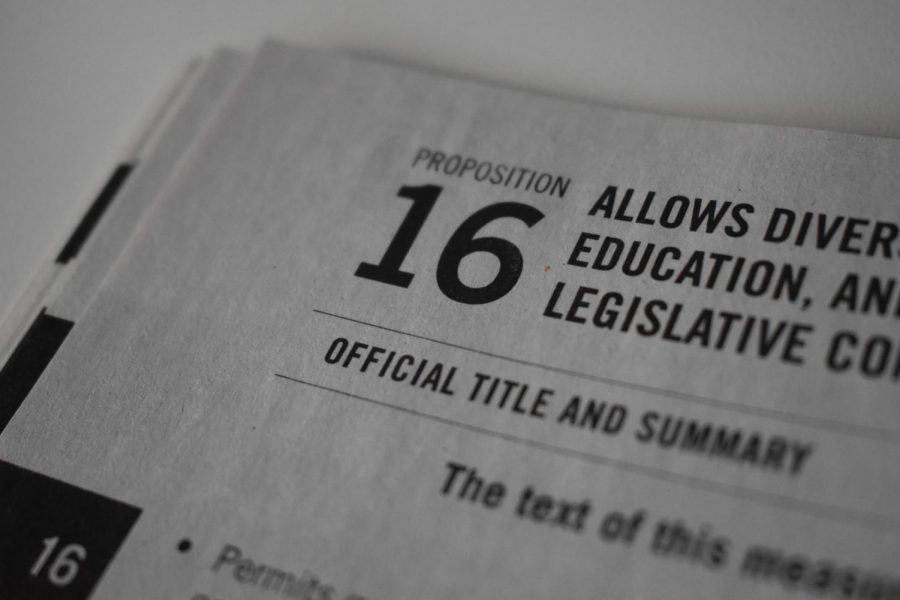California voters’ rejection of Prop 16 demonstrates their thoughts on affirmative action
California residents overwhelmingly voted no on Proposition 16.
November 23, 2020
The recent U.S. elections have brought attention to new issues that affect minority groups.
One of these issues is California’s Proposition 16. The measure did not pass, but if it had, it would have allowed “State and local entities … [to] … consider race, sex, color, ethnicity and national origin in public education, public employment and public contracting to the extent allowed under federal and state law.”
Though it is a progressive outreach that would encourage affirmative action, it also brings into question what true equality means.
If Prop 16 had passed, it would require that an individual’s exclusive background would be considered as a means for hire or acceptance in similar regard to their own content of character.
We see this today in universities when schools admit people of color to diversify their student body to create an idea of equal opportunity.
Though Prop 16 could give opportunity to minority groups who lack certain advantages, it is also unfair to classify an individual’s race or background as a defining factor in terms of their work and education.
People should be recognized for their work ethic and determination.
Just because people of different backgrounds are included, does not mean they will be treated with equal opportunity once admitted.
As a society we have to be willing to be open to different groups and cultures rather than making policy or rules about it.
As a Latina myself, I want people to recognize me for what I am capable of doing before labeling me as just another person of color who is a great addition to a school’s or job’s diversification.
Prop 16’s failure to pass shows how people are questioning the validity of this measure.
California is known to be a “blue” state.
Many of the resident’s values coincide with issues discussed in identity politics because of its diverse population. I think people felt that Prop 16 was an overcorrection in trying to dismantle discrimination.
One would assume that a blue state would support a Democratic funded measure that would potentially help minority groups.
According to a USA Today opinion article, the measure was endorsed by Vice President elect Kamala Harris, but “The NO on 16 campaign drew from Republicans, Democrats, independents and men and women of all colors and creeds.”
It seems as if the California residents are diverse in ethnicity, culture and even political affiliation.
Many were shocked that Prop 16 did not pass because a lot of money was invested in its campaign.
This recent election proves that the power relies on the vote of the people. The journey to encourage diversity must stem from a cultural change where companies and schools are willing to include everyone without having to be told to.
As society evolves, so do the measures placed during the elections. Regardless of political background, the residents of California have made a clear choice on what they believe defines equality.






